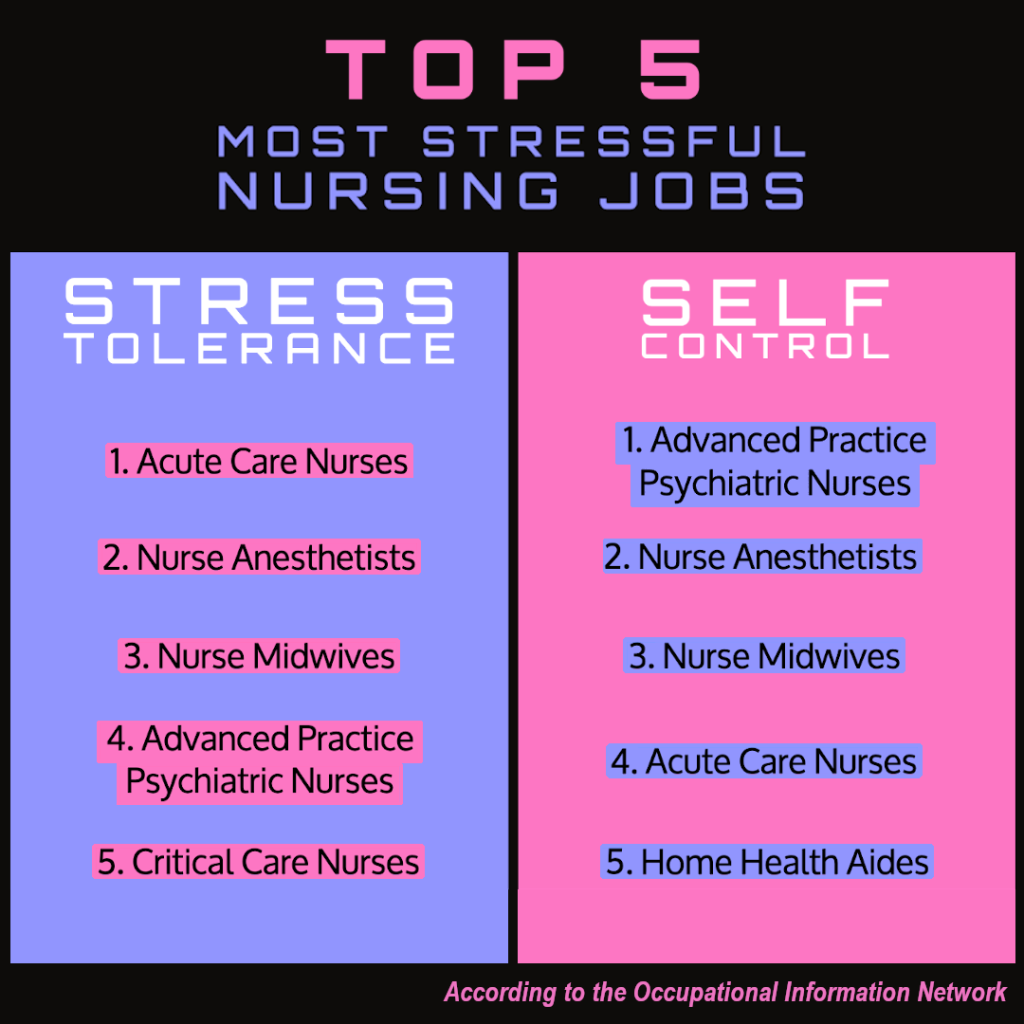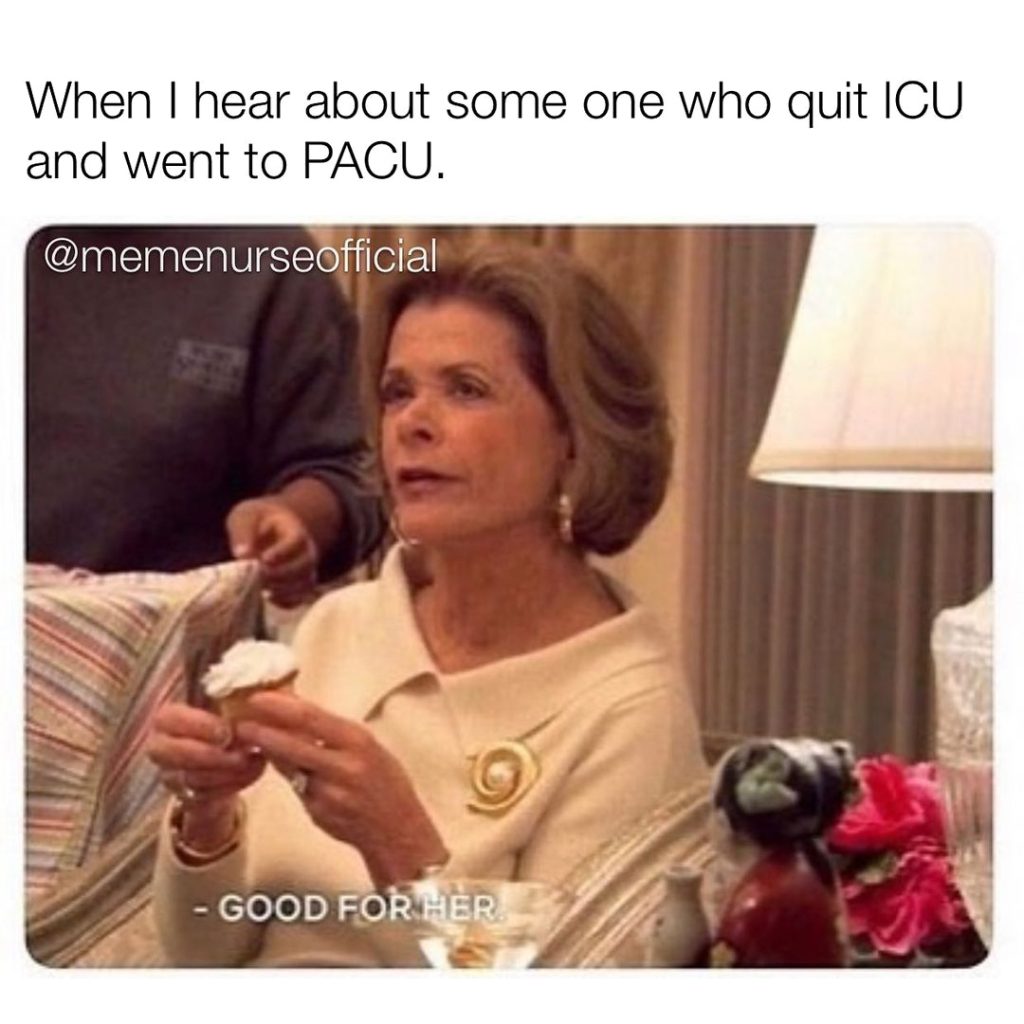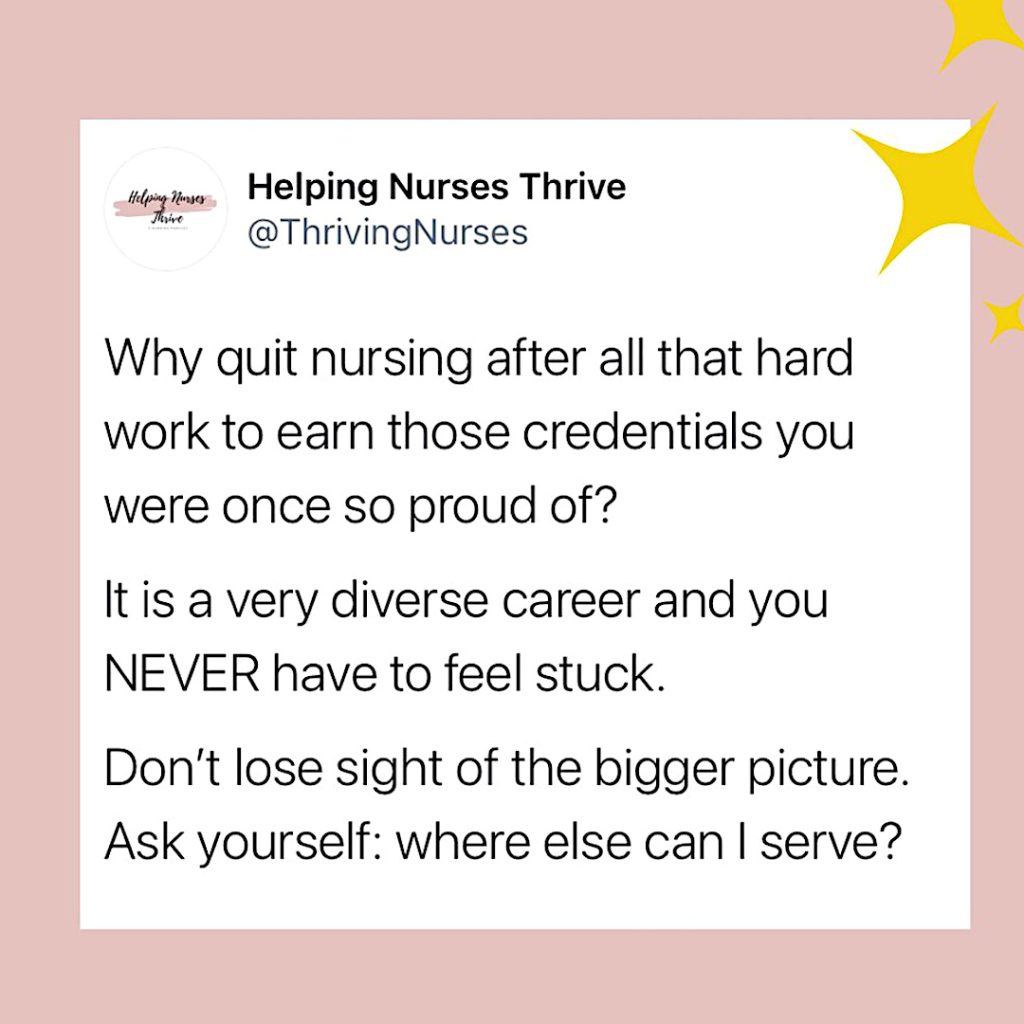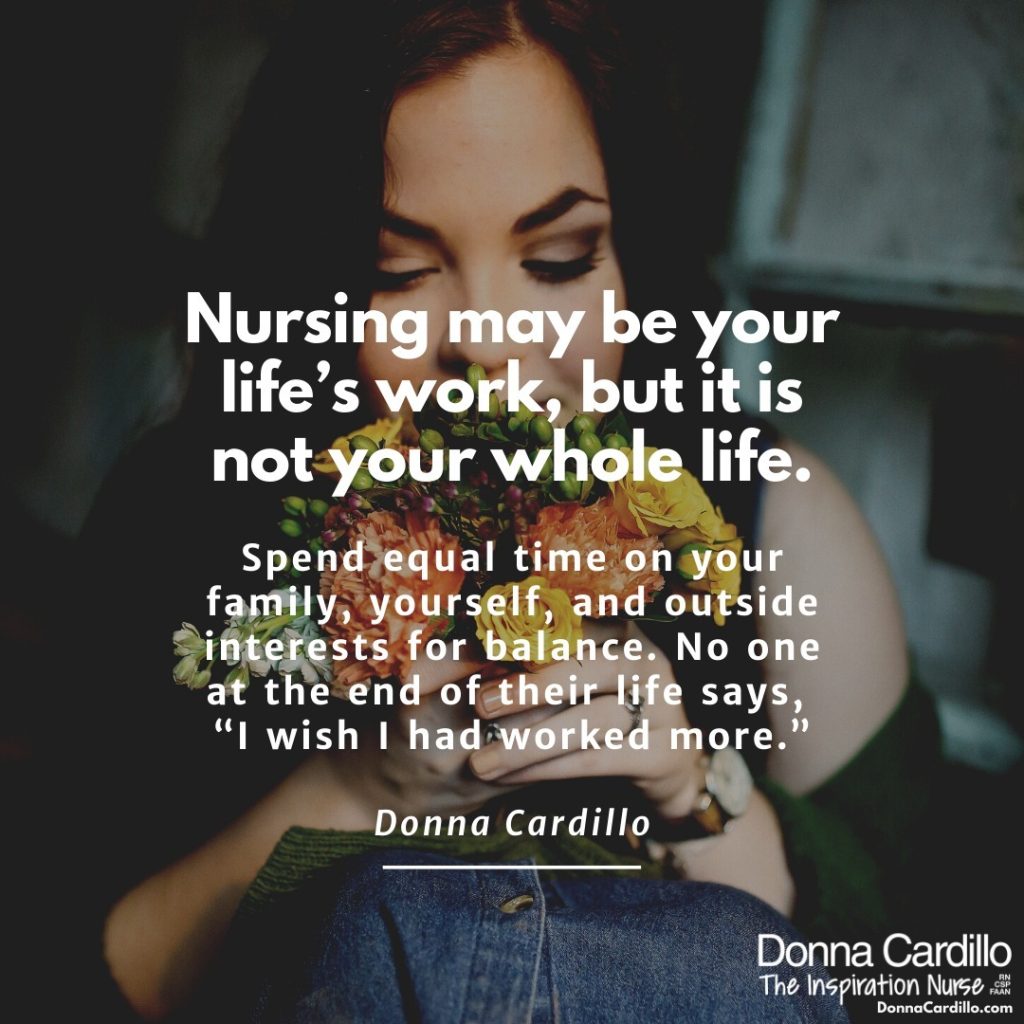O*NET is a free, government-sponsored database with answers to any number of questions you might have about jobs and professions — useful, but not very exciting. But here’s something interesting: they also know what the most stressful nursing jobs are!
Or… do they? And what did you tell us when we asked about the least stressful nursing specialties?
Here’s their take. They’ve listed all occupations by stress tolerance, which they define as jobs where you need to be able to “accept criticism and deal calmly and effectively with high-stress situations,” and by self-control, which means you have to be able to “maintain composure, keep emotions in check, control anger, and avoid aggressive behavior, even in very difficult situations”.
Shocker: healthcare professions score really highly on requiring stress tolerance. I know, right — who’d have guessed?
No fewer than 37 health care jobs rank in the top 100 most stressful jobs by this metric. Yep, that’s right: over a third of the country’s most stressful jobs are in healthcare! Specifically, five of the top 30 most stressful jobs are in nursing.
We’ll buy that. Nursing can be an incredibly rewarding profession, but it’s true — it’s not for the faint of heart, we can all attest to that. But what do you think about how they break it down in more detail? Do you agree with their ranking, or would you have sorted them very differently?
Do you agree?
Let’s look at the stress tolerance metric first. Both lists include 873 occupations, from actors and actuaries to ushers and upholsterers. Here are the highest-ranking jobs in nursing:
6. Acute Care Nurses, rated 97 out of 100 🤯
10. Nurse Anesthetists — 96 😨
11. Nurse Midwives — 96 😨
16. Advanced Practice Psychiatric Nurses — 94 😧
26. Critical Care Nurses — 93 😧
Registered Nurses as overall profession clock in at number 136, while LPNs and LVNs (131st) and NPs (135th) rank just a tad higher — but they’re all still rated a pretty imposing 87 out of 100. Nursing Assistants are rated 86, Postsecondary Nursing Instructors and Teachers 85, and Home Health Aides 84; no great differences there.
Looking for a career alternative that, at least according to O*NET, requires the very least amount of stress tolerance? Try retraining as a boilermaker or furniture finisher… but we can’t help you with those jobs, I’m afraid!
Next: self-control, cause those traits sound pretty familiar too! How does the list change?
25. Advanced Practice Psychiatric Nurses — 94 😧
60. Nurse Anesthetists — 92 😓
61. Nurse Midwives — 92 😓
82. Acute Care Nurses — 90 😞
97. Home Health Aides — 90 😞
100. Nursing Assistants — 90 😞
RNs in general show up at a leisurely 364th place in this list (rated 79 out of 100), while LPNs and LVNs are thought to need more self control (rated 87).
Not a whole lot of differences! But there’s something to be said for the idea that CNAs and home health aides might require fewer formal qualifications than RNs, but are put even more often in positions where it takes real effort to maintain your composure and keep your emotions in check…
Now one thing you’ll have immediately noticed is the lack of detail. Yeah sure, being an RN is stressful, but what kind of RN? An LPN where? That’s where you come in! Tell us what you think: what are the most stressful specialties in nursing in your experience?
And even more importantly… which specialties are the least stressful?
Searching for the least stressful job in nursing
We once asked our followers, tongue firmly in cheek, what they thought of PACU: “the place where nurses go to pasture, or the best choice you ever made?”
Definitely no kind of pasture, the responses all agreed — “you have to be on top of all your nursing skills and critical care credentials, not to mention 24 hours on call days”. But, on the flip side: you have a lot of autonomy, one-hour patient turn arounds, the patients usually like you, there’s lots of variety, “AND we don’t have to deal with families much 😀”.
One of the PACU nurses who replied was pretty adamant: “after 20 years of everywhere I came to PACU 14 years ago. Never leaving. Nope. Never ever. Carry me out in a box I say ⚰”.
But if PACU isn’t quite the least stressful job either, what is? Same day surgery? Telephone triage? Office/outpatient? Radiology? Hospice? Ambulatory care? Let us know in the comments!
In nursing, you never have to feel stuck
There’s a serious message in all this too, for all of you who feel stuck in a nursing job that stresses you out in unhealthy ways. The nursing profession is so rich in career paths — there are so many settings, so many specialties!
For example, the stress that comes with the hectic pace and unpredictability of an ED is very different from the meticulous attention to detail that’s required at all times in the ICU, and some nurses might suffer in one setting but thrive in the other. Others would hate to find themselves in either job, but have found happiness and fulfillment in different workplaces — specialties where their nursing expertise isn’t any less important or valued, but have a decidedly different kind of vibe.
That’s why it’s always good to keep looking, even when you already have a job. If you don’t feel at ease in your current position, there will almost always be another option that’s a better match for you. And you can use our site to find the right nursing job for you!





Rhonda Woodfine
HOSPICE NURSING – is terrifically stressful. The charting alone takes up your evenings and your days off. And no, don’t expect to get paid for it. You will be on call nights and weekends, and driving to a strangers house at 3am parking 2 blocks away can be pretty scary. Terminally ill patients have very diverse critical illnesses that, if they hadn’t chose to be on hospice, would, in many cases, be in the ICU. Patients with wounds down to the bone, with cancer that is growing out of their skull, pts with Alzheimers who have surgical wounds that they won’t let you get near without you getting hit, young people in their 30’s with brain cancer, draining fluid out of patients lungs with pleurex drains, PCA’s and insulin pumps, home ventilators and IV’s – and all the while you are under the time constraint of trying to drive to your location, manage pts symptoms of pain/shortness of breath/vomiting coffee grounds/severe uterine bleeding etc, calming distressed family, charting, ordering meds, ordering supplies and equipment, talking to drs/social workers/bath aides/chaplains, updating care plans and med profiles, dealing with text messages from families that you aren’t even scheduled to see that day, and all within 1 hr 40 minutes. Yes, that’s how much time you get per medicare with each patient. Obviously its not possible, especially if you have a dying patient in front of you, because we aren’t going to leave them, we will do a continuous care and hope another nurse will see out scheduled patients for us. So, whoever said that Hospice nursing is LOW STRESS, I advise you to spend one week with us – you won’t be able to get out of bed because of the exhaustion!
Jo
We hear you loud and clear! You are entirely right, of course. You do an extremely demanding job — and one which, as you point out, takes much more time to do well than is provided for. People don’t like to stop to think too much about the pain and suffering you see, which must take a psychological as well as physical toll.